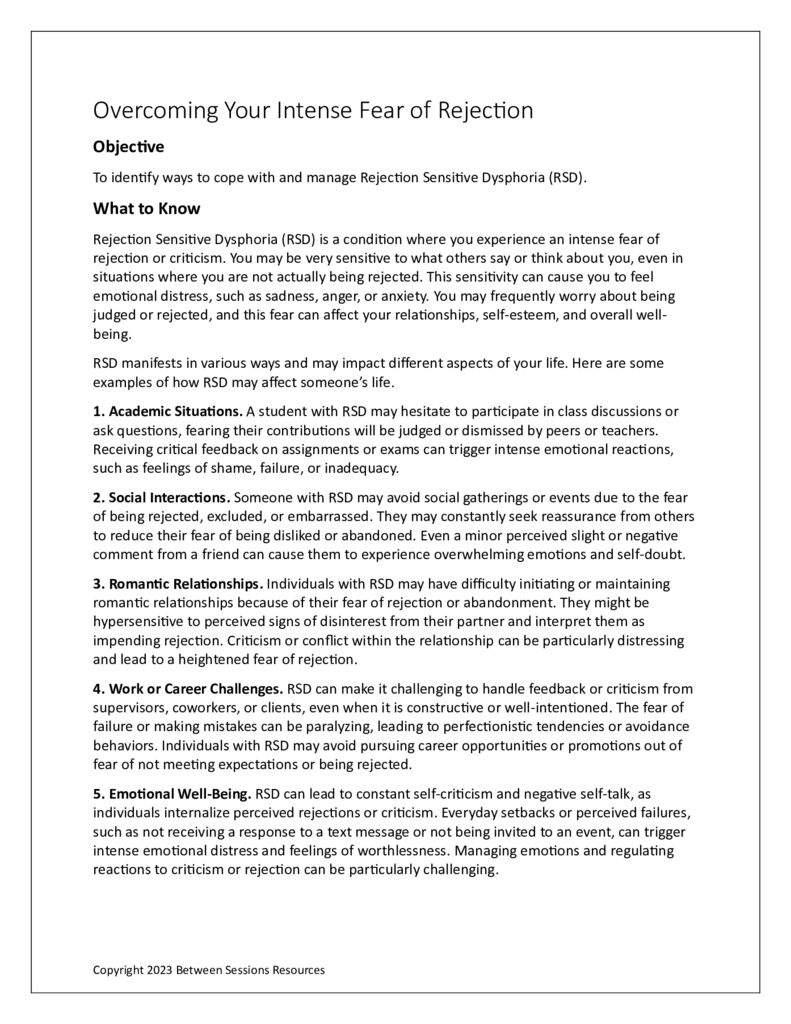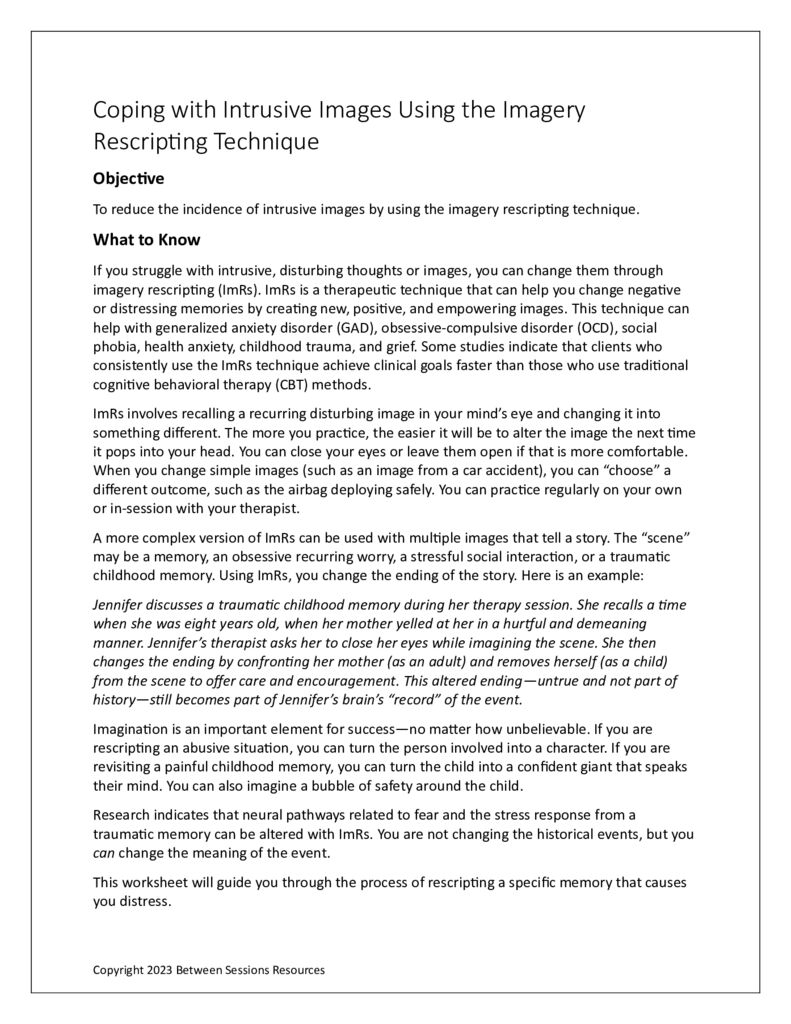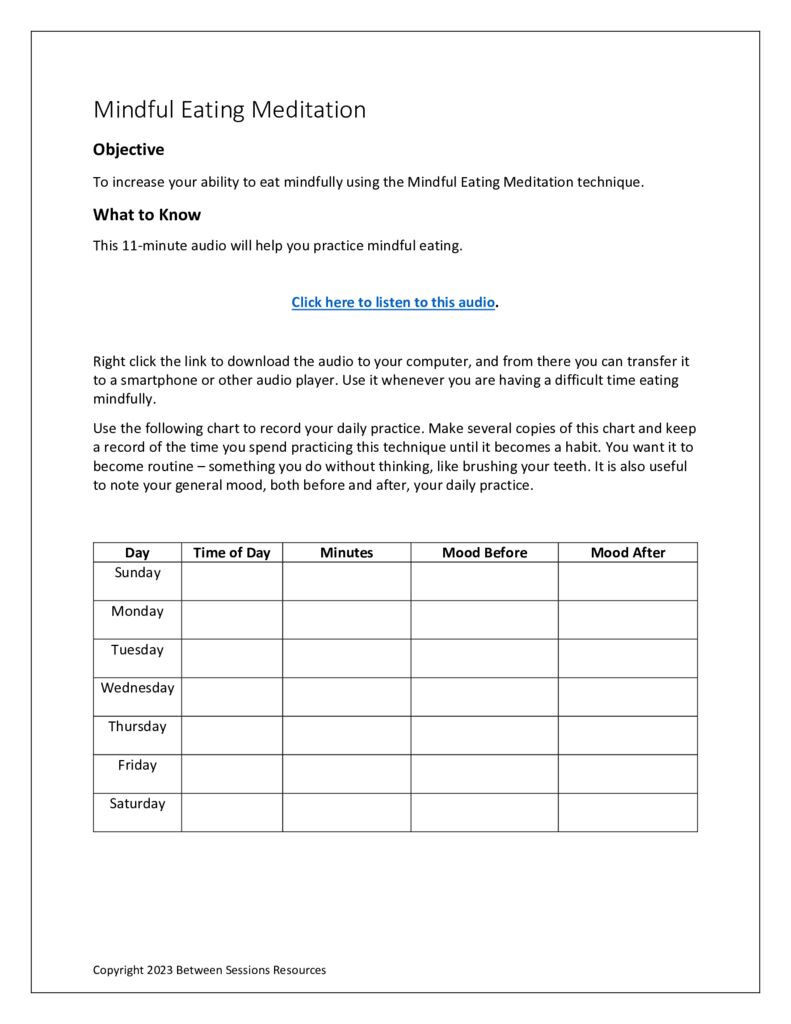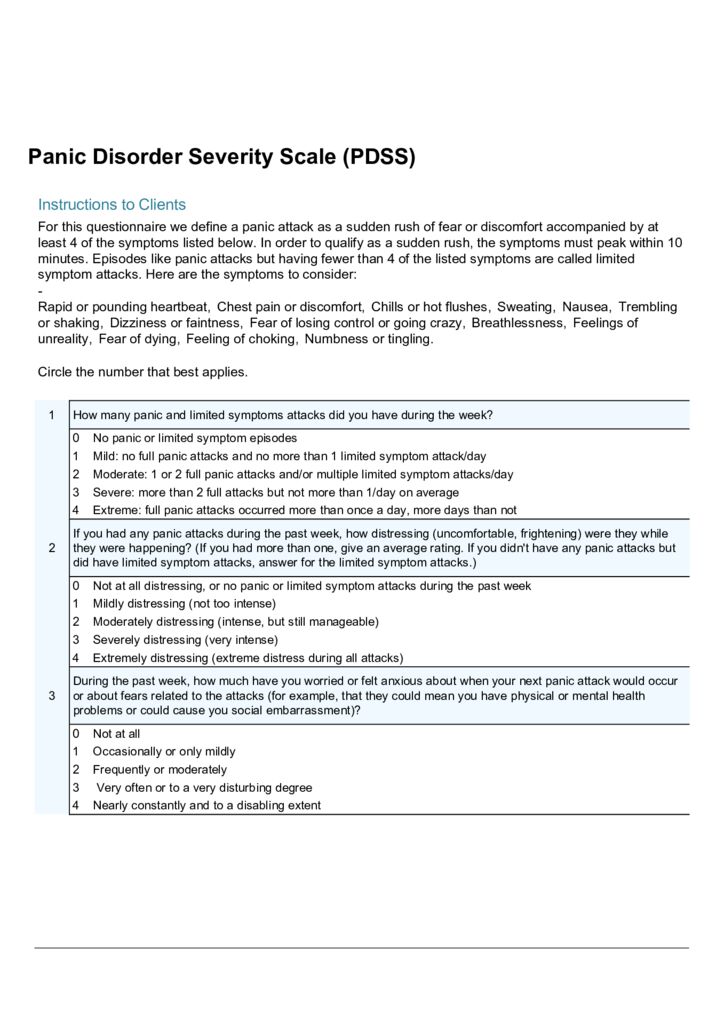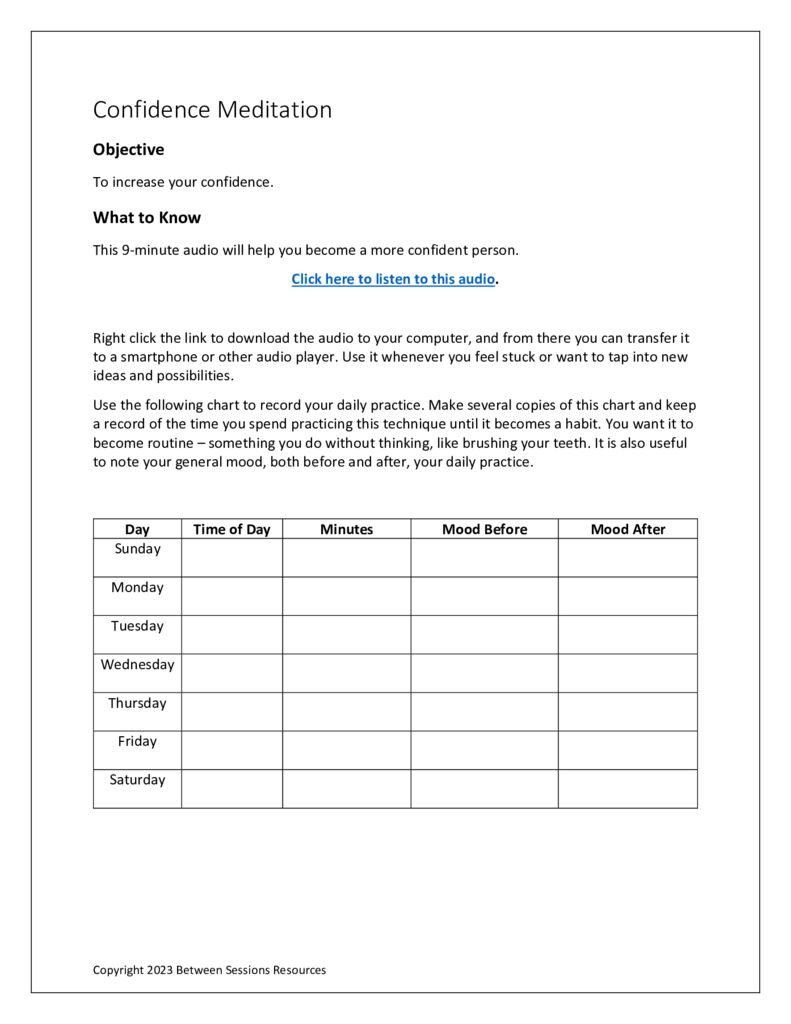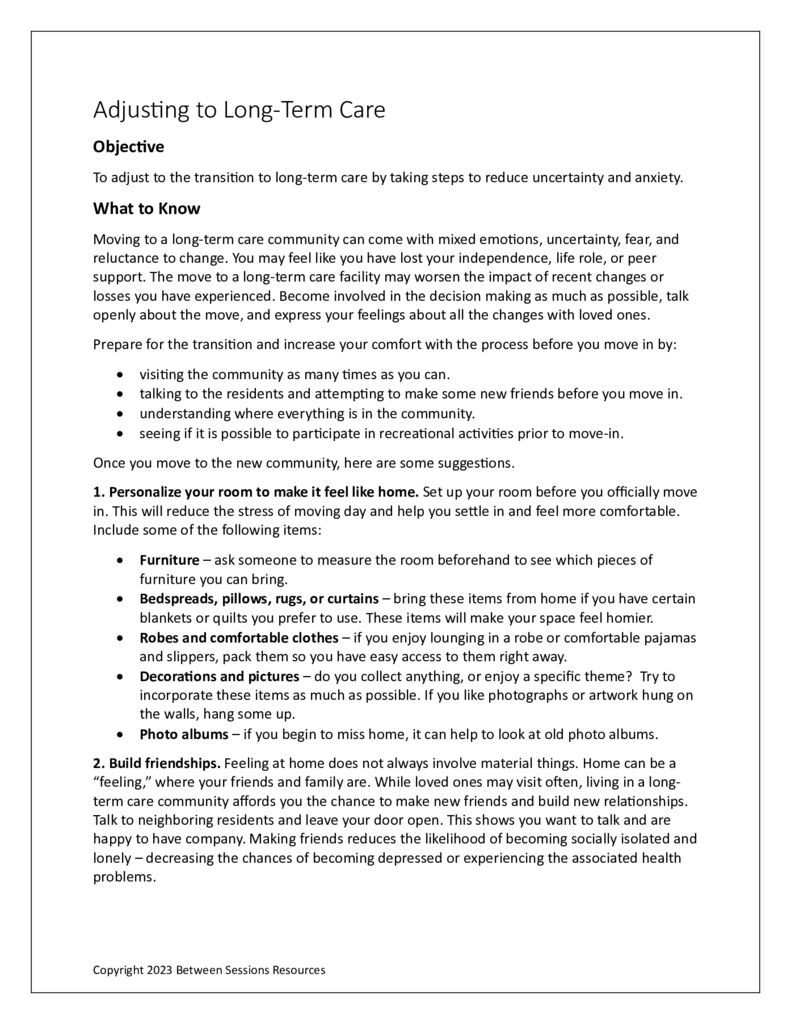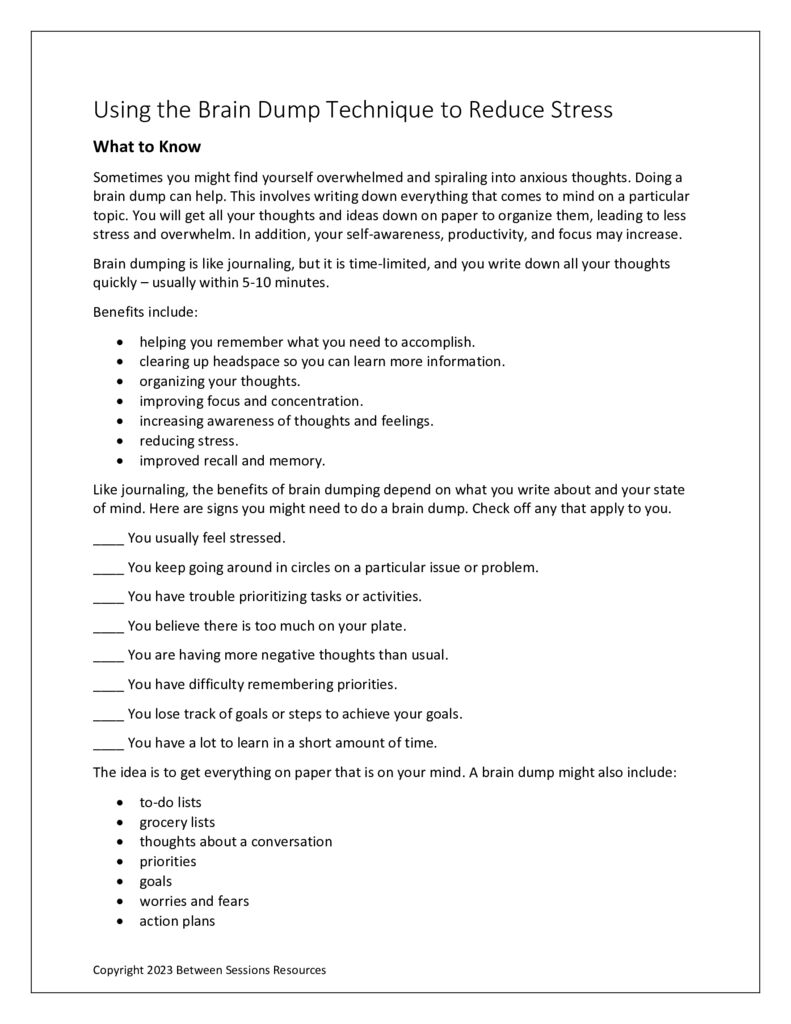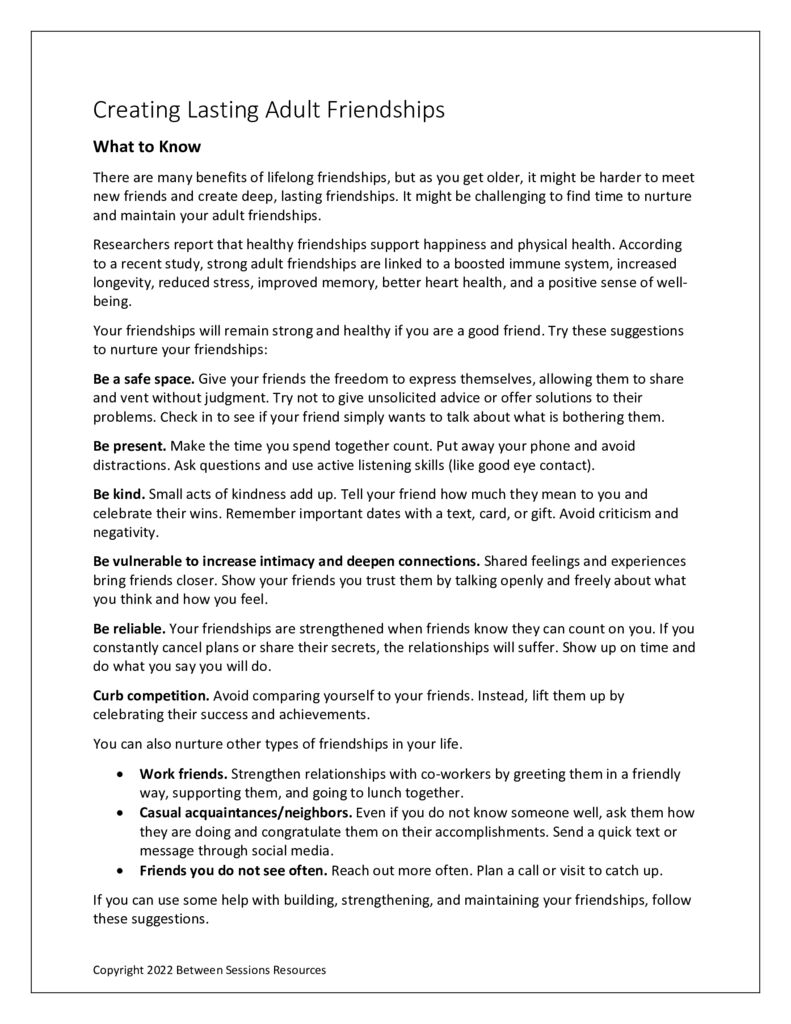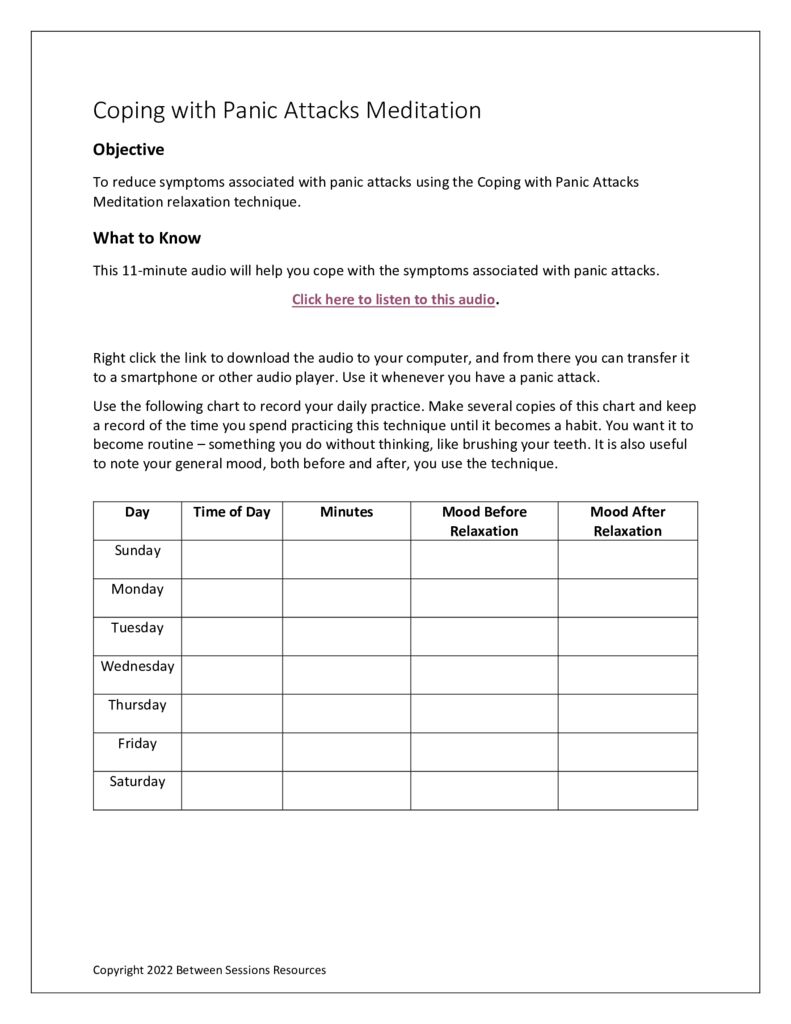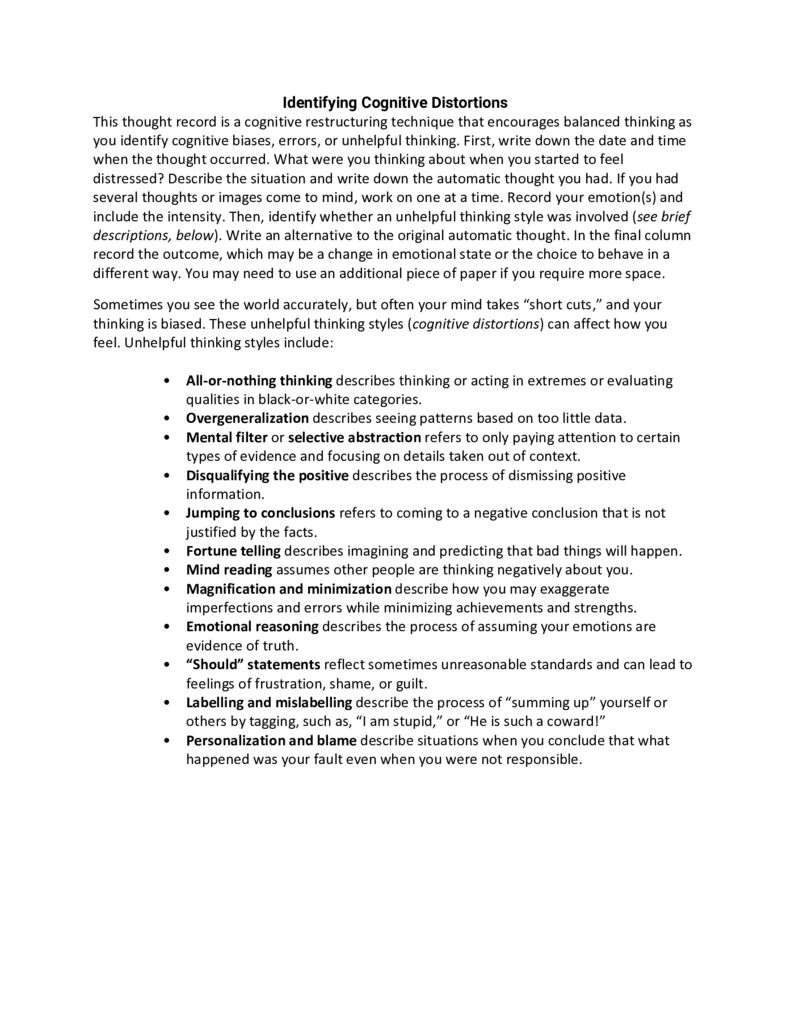This worksheet helps clients that struggle with Rejection Sensitive Dysphoria (RSD), a condition where they experience an intense fear of rejection or criticism. They are extremely sensitive to what others say or think about them, even in situations where they are not actually being rejected. This sensitivity can cause them to feel emotional distress, such as sadness, anger, or anxiety, and they may frequently worry about being judged or rejected. RSD affects their relationships, self-esteem, and overall well-being. (0523, rejection, ADHD, criticism, anxiety disorders)
This worksheet helps clients that struggle with intrusive, disturbing images, change them through imagery rescripting (ImRs). ImRs is a therapeutic technique that can help change negative or distressing memories by creating new, positive, and empowering images. (0523, GAD, OCD, anxiety disorders, trauma, memories, intrusive images)
This 11-minute audio teaches people the concept of mindful eating. It includes a chart to keep track of when the audio is used and the person’s mood before and after listening. It also includes a transcript of the audio if people prefer to read to themselves or notate important things to remember. (0423, eating disorders, mindfulness, ACT, DBT)
This 7-item assessment tool is designed to be a quick way for clinicians to measure the severity of panic attacks. Please note that the first two ages should be given to the client and the third page is for the clinician. (0423, anxiety disorder, panic attacks, assessment)
This eight-minute audio focuses on helping people become more confident. It is recommended that people listen to it every day for a week. A chart is included to help people keep track of their listening habits and rate their moods before and after listening to the audio. (0423. anxiety, shyness, depression)
This worksheet is intended to help people entering a long-term care community deal with fear, anxiety, and the mixed emotions that can accompany this transition. This worksheet gives suggestions to help deal with the understandable anxiety and tasks to complete to address the practical aspects of the move. (0223, elder care, transitions, elderly)
This worksheet describes a stress reduction technique that involves writing down everything that comes to mind on a particular topic. A brain dump could include thoughts about a conversation, goals, worries, fears, or a list of things that are bothering you. The worksheet describes four categories of brain dumps. It encourages people to use a notebook or journal to practice this technique each day for two weeks and record their feelings. (0122, stress reduction, journaling)
This worksheet emphasizes the importance of strong adult friendships for emotional and physical health. It has 12 suggestions to build strong friendships followed by questions to help people reflect on the ways they make and keep friends. The worksheet includes a chart for people to record the activities they undertake to foster friendships. (1222, relationships, friendships, loneliness, depression)
This 11-minute audio was created to help people cope when they are having a panic attack. (1222, anxiety, panic disorder, relaxation techniques, audio)
This worksheet teaches clients the technique of cognitive restructuring. The different kinds of cognitive distortions are explained and then clients are asked to keep a chart where they identify their automatic thoughts and substitute more realistic alternative thoughts. (1222. CBT. cognitive restructuring thought changing)

